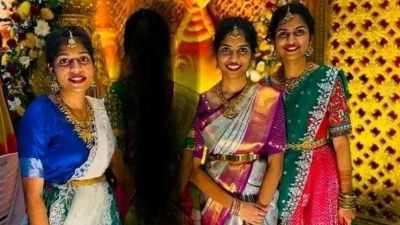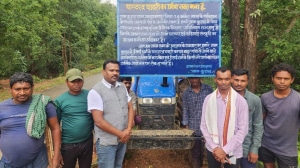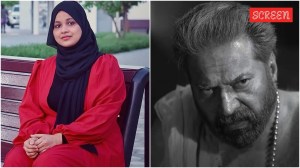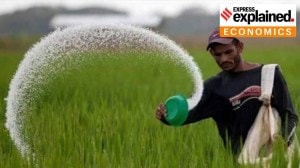Group B but not really B team of IFS
One reason being cited for Second Secretary Madhuri Gupta,posted in the Indian High Commission in Islamabad,leaking information...
One reason being cited for Second Secretary Madhuri Gupta,posted in the Indian High Commission in Islamabad,leaking information to Pakistan is that she was disgruntled with her job and felt discriminated against being a Group B IFS officer. A look at the structure of the Indian Foreign Service and where Group B officers like Gupta fit in:
The IFS
The Indian Foreign Service is part of the Central services of the Government of India,comprising career diplomats. The Foreign Secretary is its administrative head.
The selection
The officers are selected through the combined Civil Services Examination held by the Union Public Service Commission. Around 15-16 people,generally among those who rank the highest in the exam,are selected for the IFS annually.
The training
After recruitment,the IFS officers are sent for a three-and-a-half-month Foundation Course to the Lal Bahadur Shastri National Academy of Administration in Mussoorie,following which they undergo a one-year training at the Foreign Service Institute in Delhi. They are then attached to a division in the Ministry of External Affairs for a period of six-seven months. This is followed by a period of language training in the countries they choose,ranging from one to two and a half years,depending on the chosen language. During this training in the concerned country,they go by the designation of Third Secretaries. Their appointment to a particular division in the ministry depends mainly on the requirements and vacancies,though the chosen language obviously plays a key part.
Group B recruitments
Apart from the IFS officers chosen through the Civil Services Exam,recruitments to lower posts are carried out through other examinations (carried out by the Staff Selection Commission),to the posts of Assistants,Lower Division Clerks (LDCs) and Section Officers,among others. An LDC is promoted to an Upper Division Clerk and then to an Assistant. An Assistant is promoted to a Section Officer and then to an Undersecretary. The starting post of a direct IFS officer,on the other hand,is Undersecretary.
Madhuri Gupta,who joined as Assistant,was promoted from a Section Officer to an Undersecretary last year. (The equivalent designation of an Undersecretary outside the country is a Second Secretary). Since it generally takes about eight years to get promoted to the next rank,that of Deputy Secretary,the 53-year-old accused of spying for Pakistan would most likely have retired as an Undersecretary.
There is an annual quota of promotions in the IFS for Grade I IFS B officers.
Prospects of Group B officers
The retirement age being 60,theoretically there is no bar on promotion,and there are instances of Group B officers being promoted to the ranks of Consuls General and even Ambassadors in some cases. It is mainly Group B officers hired as Section Officers who generally make it to the above-mentioned positions. Former foreign secretary Salman Haider says,The disadvantage a Group B officer would obviously suffer would be that of age in comparison with his/her counterparts who are direct recruits. However,once a Group B officer is promoted to Undersecretary,their responsibilities are the same as the other officers and there is no discrimination between the two. They can be called upon to perform any official task the ministry chooses for them.
Career graph of direct IFS officers
They start with Undersecretary,and can go on to become Deputy Secretary,Director,Joint Secretary,Additional Secretary,and Secretary. An IFS officer is generally eligible to become an Ambassador after attaining the rank of Joint Secretary,though there is no statutory requirement to that effect. There have been cases of even Director-level officers being made Ambassadors,but that was at a time when the cadre strength was smaller,hence there were fewer officers. Today,since there are more senior officers,the appointments from among IFS officers are generally made at the Joint Secretary level. I myself had come as a Joint Secretary after being Ambassador of Bhutan, Haider said.
Pallavi Singh
For the entire Explained series,please go to https://indianexpress.com/fullcoverage/india-explained/303/



- 01
- 02
- 03
- 04
- 05




























